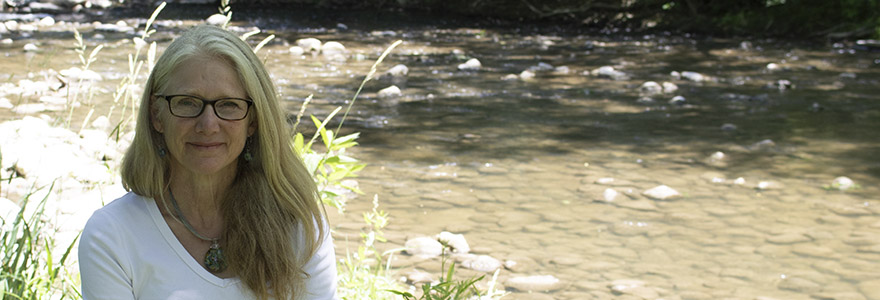News and Updates
Contact
Faculty of Social Science
Social Science Centre
Room 9438
Western University
T. 519-661-2053
F. 519-661-3868
E. social-science@uwo.ca
Katrina Moser new chair in the Department of Geography & Environment
June 27, 2022
Story by Rob Rombouts
Katrina Moser is the new chair of the Department of Geography & Environment.
Moser is a Paleolimnologist, examining the records preserved in lake sediments to study past environments. She is particularly interested in how lake ecosystems respond to changing climates. Most of her research is in remote areas – such as the Canadian Arctic, and alpine areas in the US and Canada – but she also studies small lakes and ponds in southern Ontario, such as Westminster Ponds in London, Barry Lake near Peterborough and Chandos Lake in the Kawarthas.
A surprising finding from Moser’s alpine research was that even remote areas are affected by humans via atmospheric pollution. “We were working there because we expected that human impacts would be less, and climate signals would be strong,” said Moser. “Instead, we found that long-distant atmospheric deposition of fertilizers were markedly changing these so-called pristine lakes.”
This impact is reflective of the overall importance of the discipline, showing the connections between people and their environment.
“Traditionally, Geography at Western has been focused on connections between natural or physical environments and humans. There is not really any other discipline that is so focussed on the links between humans and the Earth’s environments. As geographers we try to understand the complex processes that link humans to physical spaces,” said Moser. “Thinking about these relationships helps us find solutions to the big problems like climate change and the impact of environmental pollutants. We need to remember that humans are an integral part of Earth systems – the air, water, land and biota.”
This connection is key to the recent changes to the department, including being renamed as Geography and Environment, the introduction of an undergraduate program in Climate Change and Society, and academic renewal of GISciences through hiring of early-stage faculty.
Moser wants to see more crossover between the four research specializations of the department - Environment Development & Health, Geographic Information Science, Physical Geography, and Urban Studies. She also hopes there will be further growth in the number of Indigenous scholars in the department.
In a recent project, Moser was part of a team that re-envisioned an existing class on climate change, focusing on concrete action students can take, and intertwining Euro-Western science and Indigenous knowledge. “We’ve been going down the same pathway without a change,” she said. “We need to have a change of perspective.”
She hopes this course can find an online audience and wants to explore whether the model will work for other offerings in the department.
“Research and teaching can be so interwoven. I have been studying climate change for 30 years, but I have not seen any big changes in how we approach the problem,” said Moser. “This is a way, through education, to contribute to making some of those changes.”

